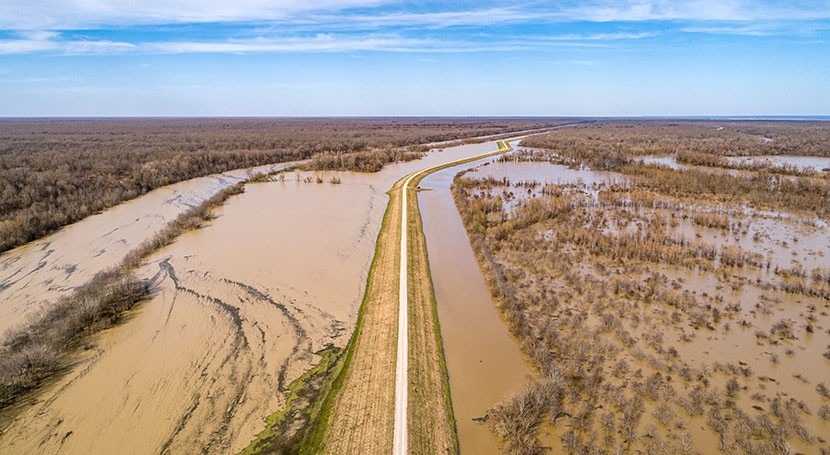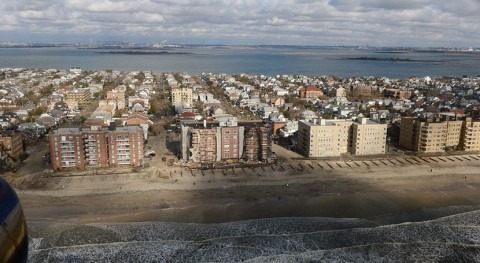When told about risks from flooding, prospective homebuyers were less likely to make offers on vulnerable properties, according to new research from the real estate brokerage company Redfin, which says that a growing awareness of climate risk could stunt home prices in flood-prone areas.
“We now have definitive evidence that the risks posed by climate change are affecting where Americans choose to live,” Redfin’s chief economist Daryl Fairweather said in a statement. “As more house hunters become aware of climate risk, homes in endangered areas will likely receive fewer offers, causing home values to fall.”
For the study, which involved more than 17 million prospective homebuyers in the U.S., Redfin gave a subset of users access to flood risk scores for individual homes, including information on how climate change is worsening floods. The information had a discernible effect on users interested in high-risk properties. Among this group, buyers not given flood-risk information went on to bid on homes with an average risk score of 8.5 on a scale of 10, while buyers who were told about flood risks bid on properties with an average risk score of 3.9.

Online flood risk information shown to prospective homebuyers for the study. REDFIN
“I had a buyer from the Northeast who toured a beachfront home in the Jacksonville area and was close to making an offer, but changed his mind after seeing that the flood-risk rating on Redfin was almost a 10 out of 10,” said Redfin agent Alexis Malin, who is based in Jacksonville, Florida. “He loved the house and the location, but decided the purchase was just too big of a financial risk.”
The study ran from October 2020 to January 2021 and was carried out in partnership with researchers from MIT, the University of Southern California, and the National Bureau of Economic Research. Flood-risk scores came from First Street Foundation, a nonprofit focused on climate risk.
The research comes on the heels of a new analysis from Climate Central showing that, as sea levels rise, nearly 650,000 private coastal properties could slip below the tide line by mid-century. The at-risk properties account for 4.4 million acres of land, an area larger than Connecticut.












